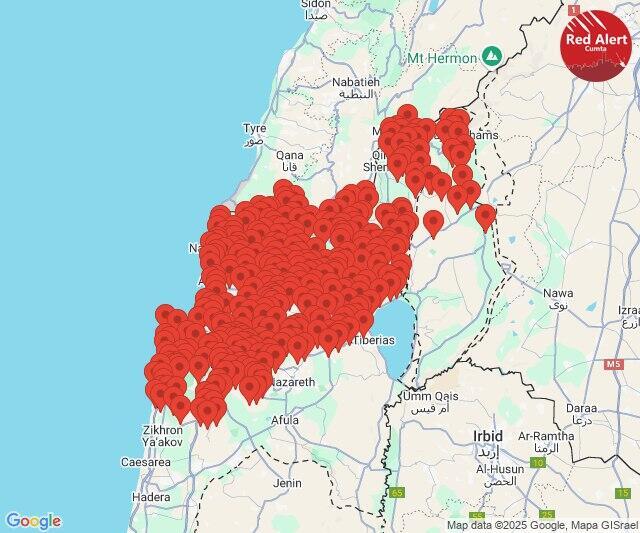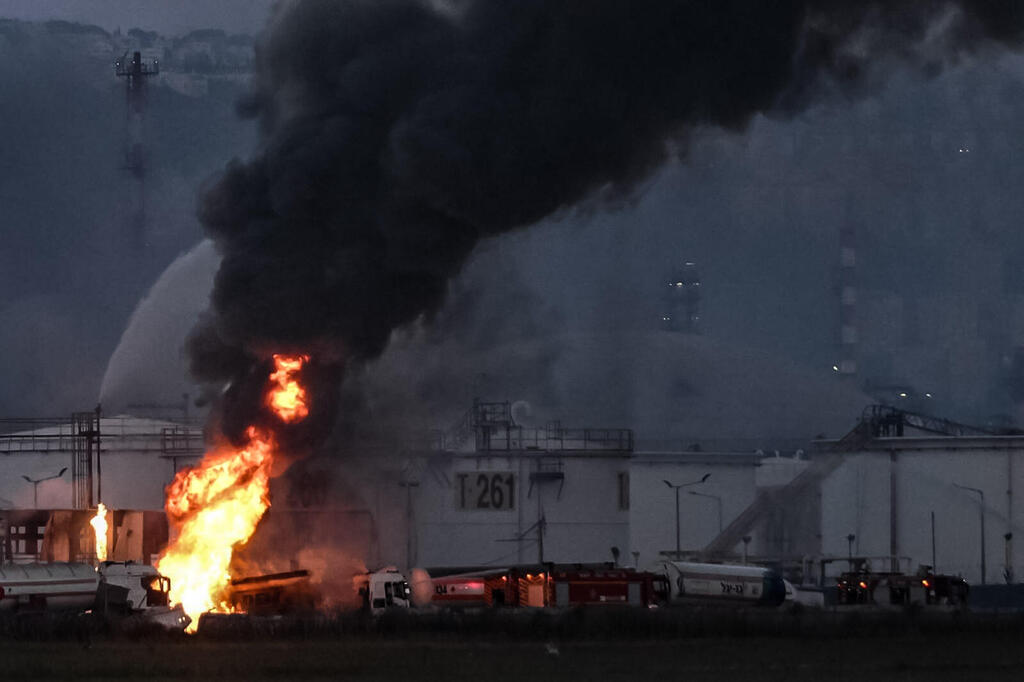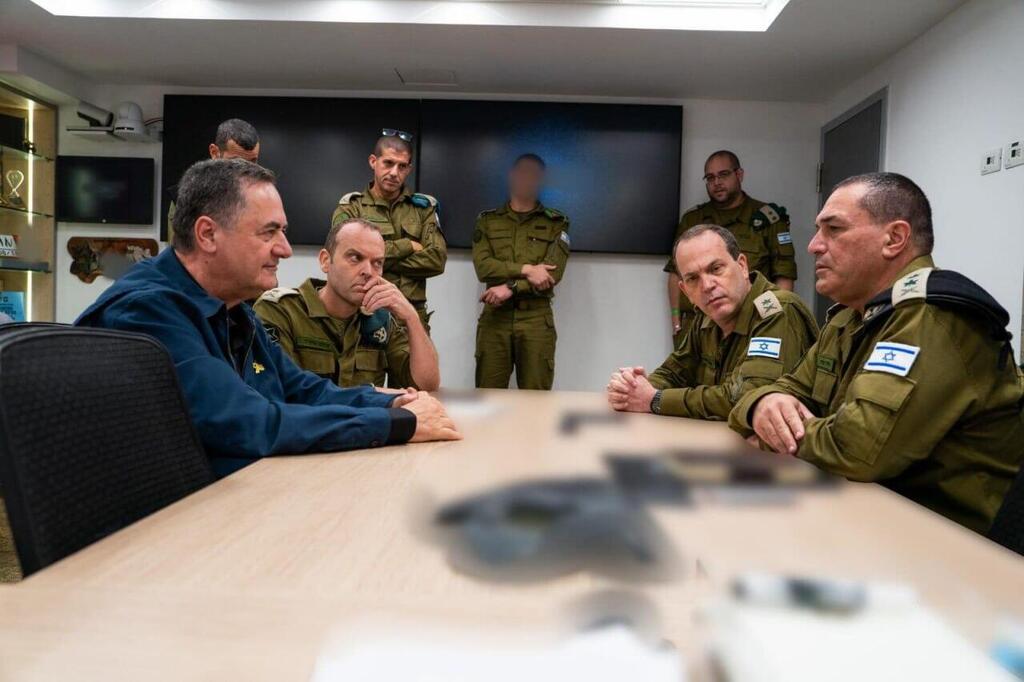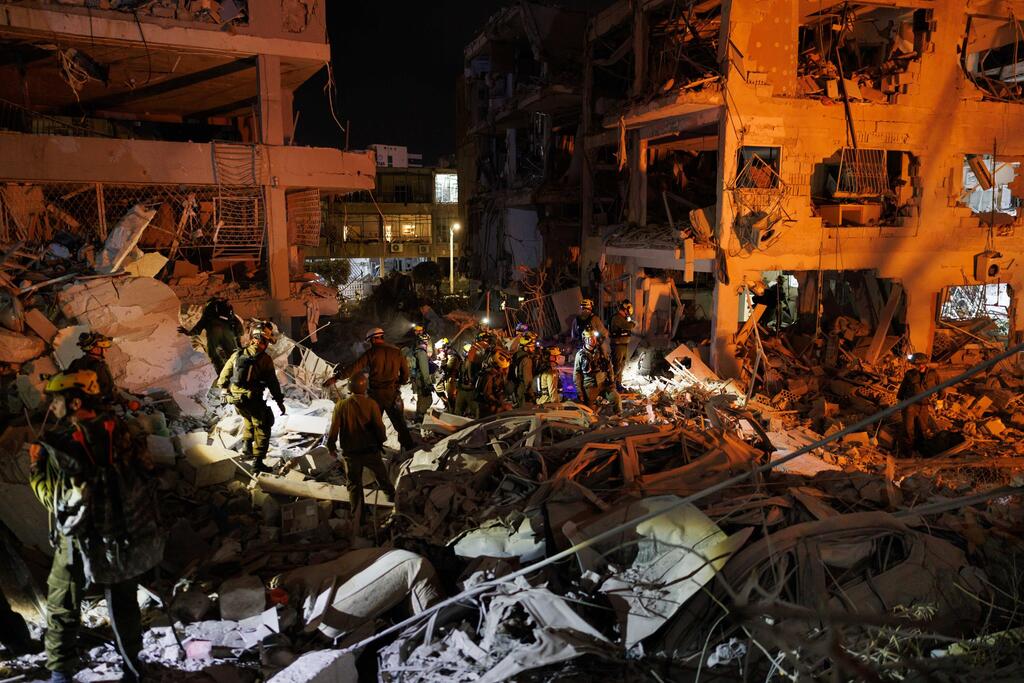Air raid sirens sounded across northern Israel on Tuesday evening sending Israelis running for their shelters. The sirens warning of rocket and missile fire were activated in a series of communities throughout northern Israel, including in the Golan, Upper Galilee, Lower Galilee, Western Galilee, in the Carmel area and Haifa, in Acre, Shfaram and Wadi Ara. there have been no reports of rockets strikes or injuries.
The sirens came shortly after IDF Spokesperson, Brig. Gen. Efi Defrin, delivered a statement saying that "Iranian regime forces have been pushed to the center of the country thanks to Air Force strikes." He added that "dozens of Air Force aircraft are continuously patrolling the skies over Isfahan, identifying threats in real time and attacking. Several hours ago, about 60 fighter jets launched a wide-scale attack wave deep into Iran. We struck 12 underground launch sites in the Tehran area."
Shortly before the latest rocket launch from Iran, Prime Minister Benjamin Netanyahu met with President Isaac Herzog for a security update.
Sirens had been activated across central Israel Tuesday afternoon as Iran launched another missile attack targeting Israeli territory, the IDF confirmed. The military said that the majority of the attack, consisting of eight rockets, was intercepted with no injuries reported.
Shortly after the attack, Igor Fredkin and Uri Levy were named as the two other fatalities from the deadly missile strike on the oil refinery near Haifa.
This latest salvo follows multiple Iranian missile attacks in the past 24 hours, including barrages that triggered alerts in northern and southern Israel. In earlier incidents, most missiles were intercepted or fell in open areas, with no casualties reported.
Authorities have instructed residents to enter protected spaces immediately upon hearing alerts and to follow Home Front Command instructions until receiving an official all-clear.
There were no immediate reports of injuries or damage from the Tuesday afternoon strike, but security officials said the situation remains dynamic as Israel continues to respond to Iranian aggression.
German Chancellor Friedrich Merz said on Tuesday that the complete destruction of Iran's nuclear weapons programme could be on the agenda if Tehran does not back down and return to the negotiating table.
"The Israeli army is obviously unable to accomplish that. It lacks the necessary weapons. But the Americans have them," said Merz in an interview with broadcaster ZDF on the sidelines of the Group of Seven (G7) summit in Canada.
A series of powerful explosions rattled central Tehran early Tuesday, amid escalating Israeli strikes deep into Iranian territory and growing international concern over a rapidly widening conflict.
U.S. President Donald Trump, addressing reporters after an early departure from the G7 summit in Canada, ruled out a ceasefire and demanded Iran’s unconditional surrender. “I’m not looking for a ceasefire. I’m looking for something better than a ceasefire. A real end. Not … an end. Giving up entirely,” Trump said. He reaffirmed his long-standing stance: “Iran cannot have a nuclear weapon. It’s very simple.”
Tehran residents reported multiple blasts across the capital, with Iranian state media confirming damage and casualties but offering no clear attribution. Israeli officials have not commented directly on the Tehran strikes but have acknowledged that their forces now operate within Iranian airspace and intend to escalate.
Iran’s Revolutionary Guards claimed they struck Israel’s Military Intelligence Directorate and Mossad operational centers. Israel did not confirm the attacks but said the threat from Iranian missiles and drones remains active.
President Trump said he may send senior U.S. officials—Middle East Envoy Steve Witkoff or Vice President JD Vance—to meet with Iranian representatives, though he dismissed talk of a near-term diplomatic breakthrough. “They should have taken the deal that was on the table—would’ve saved a lot of lives,” he posted on Truth Social. “If they want to talk, they know how to reach me.”
Back in Israel, Defense Minister Israel Katz compared Iran’s Supreme Leader Ayatollah Ali Khamenei to Saddam Hussein, warning he could face a similar fate if attacks on Israeli civilians continue. “I warn the Iranian dictator against continuing to commit war crimes and fire missiles at Israeli citizens,” Katz said.
According to Israeli sources, airstrikes have killed nearly all of Iran’s senior military leadership and key nuclear scientists. Ali Shadmani, appointed Iran’s wartime chief of staff just four days earlier, was confirmed killed in a strike. Israeli military officials described Iran’s top brass as being “on the run.”
The International Atomic Energy Agency (IAEA) confirmed damage to underground enrichment halls at Natanz, though there was no change reported at the Fordow and Isfahan nuclear sites. The agency recently declared Iran in violation of non-proliferation obligations for the first time in nearly 20 years.
The conflict, now in its fifth day, began when Israel launched a surprise air campaign following intelligence assessments that Iran was close to developing a nuclear weapon. Israel’s military says Iran has fired more than 400 ballistic missiles and hundreds of drones since then. At least 35 missiles penetrated Israeli defenses, killing 24 civilians and injuring over 647. Iran has reported 224 deaths, mostly civilians.
In Bat Yam, near Tel Aviv, rescue efforts continue at a residential building flattened by an Iranian missile. Among the dead are a grandmother and her three grandchildren. Nearly 80 buildings were damaged and 1,500 people displaced.
Domestically, Israel has canceled its early missile warning stage, replacing it with a single alert roughly 10 minutes before impact. The move reflects the shorter response times under current threat conditions.
Global markets are jittery. Two oil tankers collided and caught fire near the Strait of Hormuz, amid signs of electronic interference attributed to the conflict. No casualties or spillage were reported. The region handles nearly a fifth of the world’s oil supply.
Tensions also spiked after Israeli strikes temporarily halted production at the South Pars gas field, which Iran shares with Qatar. A Qatari spokesman said the attack was “uncalculated” and raised concerns about energy security.
Get the Ynetnews app on your smartphone: Google Play: https://bit.ly/4eJ37pE | Apple App Store: https://bit.ly/3ZL7iNv
Iran’s regional influence has eroded steadily since Hamas’ October 7, 2023 assault on Israel triggered a broader war. Tehran’s proxies—Hezbollah in Lebanon, the Houthis in Yemen and militias in Iraq—have suffered repeated blows and Syria’s Bashar al-Assad, a key Iranian ally, has been ousted.
Prime Minister Benjamin Netanyahu said Israel would not back down until Iran’s nuclear ambitions are dismantled. “We will not stop until the threat is neutralized,” he said.
First published: 16:41, 06.17.25







